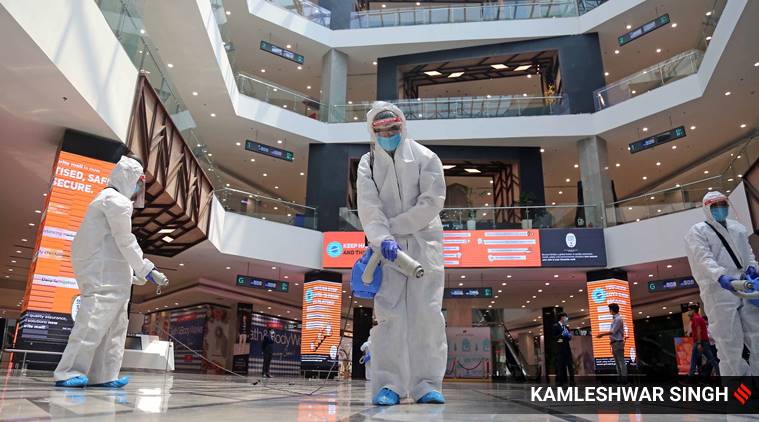 Sanitizing and cleaning in progress at Elante, the biggest mall in Chandigarh. (Express Photo by Kamleshwar Singh)
Sanitizing and cleaning in progress at Elante, the biggest mall in Chandigarh. (Express Photo by Kamleshwar Singh)
While restaurants in Punjab will continue to remain shut for dine-in even after Monday, the state government has given a go-ahead for malls and places of worship to reopen — with some restrictions in place.
According to guidelines issued by the state government Saturday, restaurants or food courts in malls will only provide takeaway service. Guests in hotels will have to be served food in rooms. The decision will be reviewed on June 15.
The fresh guidelines provide for a token-based entry to malls. There will be a provision for maximum time limit for a mall visitor. “The maximum number of persons allowed in each shop in a mall shall be fixed on the basis of maintenance of six-feet distance,” says the government notification.
As per the guidelines, mall visitors are required to have COVA app on their phones. A family will allowed to enter a mall even if one of the members has the app in his/her phone, the guidelines say.
COVA has been developed by the state government to provide preventive care information.
“Trial of clothing/accessories shall not be permitted,” says one of the guidelines for the malls.
Religious places will be allowed to remain open from 5 am to 9 pm. Not more than 20 people will be allowed on the premises at any given time and langar and prasad will not be distributed.
Night curfew is to be strictly enforced from 9 pm to 5 am.
Violation of these guidelines shall be punishable under sections 51 to 60 of the Disaster management Act, 2005 and under section 188 of IPC, the guidelines say.